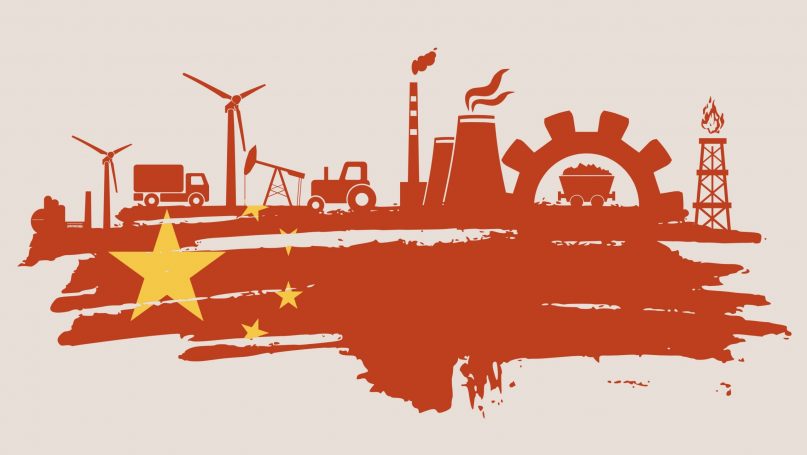Explained: Chinese-Style Soft Power

US soft power once meant that the rest of the world dreamt of living like Americans. Recently, soft power is something attributed to China as well, but as much as all of us use Chinese-produced goods, no one really wishes to live in China. Upon closer inspection, China’s soft power is nothing more than lazily hidden strong power, i.e. attempts to achieve economic, political and military dominance through the use of force.
In response to China’s rapid economic growth, establishment of networks of economic cooperation and its increased role on the global political stage, many political experts are tempted to talk about China’s soft power. However, most often they must talk about aggressive tactics employed by China that has nothing to do with the true meaning of soft power.
The wealth acquired by the Chinese through hard work began to worry the West when it became clear that China has aspirations to become a global superpower. China has the second largest defense budget, although it makes up only a third of that of the US. China has many trade partners, but they often complain that China tries to force unfair rules. Former US president Donald Trump began a trade war with China, and the EU has also accused China of favoring protectionism instead of a competition-based system. When in 2018 Canada, after a request by the US, detained Huawei’s chief financial officer Meng Wanzhou, China responded by detaining several Canadians, although Huawei denied having any ties to the Chinese government.
China has territorial claims in the South China Sea, of which it reminds by holding military exercises and causing tensions in the region.
What concerns China’s soft power, the usual suspects are the Confucius Institutes, which have been established all over the globe, and the Belt and Road Initiative. Another soft outlet of influence is China’s participation in international organization. However, if we look closer at each of them, none can be considered soft power instruments.
The Confucius Institutes teach not only the Chinese language, but also the Chinese government’s worldview. Professors in the US, Canada and Europe have urged to close the Confucius Institutes that operate in their universities, saying that they restrict academic freedom.

There have also been allegations that the Chinese Embassy has attempted to disrupt meetings between Latvian and Tibetan representatives. Former head of the Foreign Affairs Committee of the Latvian Saeima (parliament) Ojārs Ēriks Kalniņš revealed that in 2015, after a protest phone call from the Chinese ambassador, he tried to convince his colleagues not to welcome the Tibetan delegation in the Saeima. In 2013, after “instructions from higher authorities” posters advertising Dalai Lama’s lectures were removed from Riga International Airport, and since 2010 Latvia’s highest officials – president and the prime minister – have not officially met with Dalai Lama. The Latvian Ministry of Foreign Affairs advises officials not to meet with Dalai Lama or ministers of the Central Tibetan Administration, as confirmed by Latvian Minister of Foreign Affairs Edgars Rinkēvičs.
Many nations cooperate with China, but quite often they complain about China enforcing unfair conditions. This is a state-level policy – to further economic relations with numerous countries, at the same time imposing different restrictions and obstacles against them in order to tip the scales economic benefit in China’s favor.
Nevertheless, none of this can hide the ugliness of China’s communist regime in the eyes of other nations, especially at a time when China is suspected of withholding information on the true extent of the Covid-19 pandemic in the country, after the outbreak in Wuhan in 2019. Moreover, China is also being accused of Uyghur genocide, with more and more information on this issue coming to light in recent years.
Authoritarian regimes in their essence are incompatible with true soft power, as it’s three main pillars are an attractive culture, political values and a morally just foreign policy, and the only thing China has is an attractive culture. To compensate for the lack of benign political values and foreign policy, China employs means that cannot be considered part of the arsenal of soft power.
Disclaimer:Articles published under “DefenceXP” are written by Guest Writers/Authors and Information/Facts/Opinions expressed within this article are on an as-is basis or personal opinions of the author. The information, facts, or opinions appearing in the article do not reflect the views of DefenceXP and DefenceXP does not assume any responsibility or liability for the same. DefenceXP is not responsible for the accuracy, completeness, suitability, or validity of any information on this article. The article is for information purposes only and not intended to constitute professional advice.





